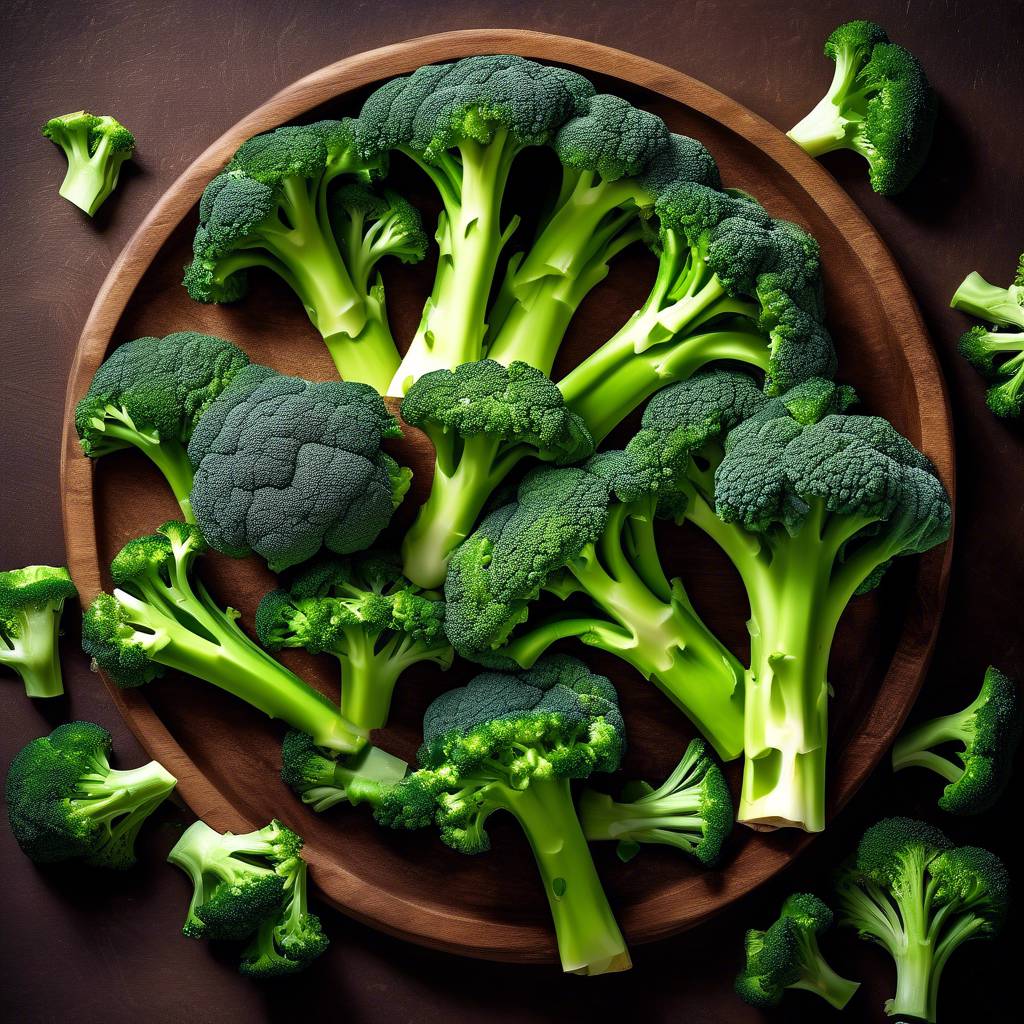Broccoli is a favorite vegetable among American adults, listed as the No. 2 favorite veggie in a recent survey of over 5,000 people. It is versatile, inexpensive, and a great addition to a variety of dishes such as soups, stir-fries, and pasta. In addition to adding flavor and texture to dishes, broccoli has numerous health benefits. It is part of the cruciferous vegetable family, known for its robust antioxidant profile. This green flower is packed with nutrients and may protect against cancer, safeguard the heart, and promote digestive health.
Broccoli is rich in glucosinolates, which are sulfur-containing compounds that give it a strong smell and sharp flavor. These compounds break down during chewing and may have anti-cancer effects, protect cells from DNA damage, inactivate carcinogens, promote cancer cell death, and have anti-inflammatory effects in the body. Studies have shown a link between eating cruciferous vegetables like broccoli and lower incidences of breast, lung, and prostate cancer. Broccoli also has antioxidant properties that benefit the heart, with research showing that people who consume more cruciferous vegetables have lower rates of developing cardiovascular disease and stroke.
Broccoli is also a valuable source of fiber, which promotes digestion, helps control appetite, and plays a role in maintaining healthy gut bacteria. A recent study has shown that eating broccoli can positively affect the gut microbiome by reducing harmful bacteria and increasing beneficial bacteria. While broccoli is a nutritious vegetable with numerous health benefits, some people may experience side effects such as gas and bloating due to its raffinose content. Cooking broccoli can help reduce these digestive side effects, as the raffinose is broken down during cooking.
There are several ways to cook broccoli, including roasting, air frying, steaming, or adding it to soups, stir-fries, or boiling pasta. Broccoli can be a source of protein, with one cup containing 2 grams of protein. While it may not be considered a high protein source, it can still contribute to meeting daily protein needs, especially for those following a plant-based diet. Broccoli sprouts, which are baby broccoli plants, are also rich in antioxidants and are being studied for their potential to combat inflammation and insulin resistance.
Get creative with incorporating broccoli into your meals with these healthy and delicious recipes. Whether eaten raw or cooked, broccoli can add a nutritious boost to your diet. From broccoli pesto to roasted broccoli and broccoli sprout salads, there are plenty of ways to enjoy this nutrient-rich vegetable. With its versatile nature, health benefits, and delicious flavor, broccoli is a great addition to any diet and can be enjoyed in a variety of dishes.









